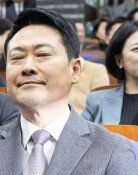Records Stored away over 30 Years
Records Stored away over 30 Years
Posted December. 07, 2001 09:59,
The records about the 370.000 drafted soldiers and workers under the rule of Japanese imperialism have been stored in the Government Archives & Records Service (GARS), but they were not notified to the bereaved families more than 30 years. Japanese government had transmitted them to Korean government four times since 1971 till 1993.
According to the Ministry of Foreign Affairs and Trade and GARS, Japanese Government passed over the records once in October 1971, March 1991, December 1992, and October 1993. The records contain the names of 373.602 people, including dead soldiers and civilian employees and those who were drafted as soldiers or workers whose fates were unknown.
`The list of dead soldiers and civilian employees` which Ministry of Finance (current the Ministry of Finance and Economy) received in October 1971 includes names, domiciles, addresses, and the date and the place of death of 21.699 people. An official who transferred the records from the Ministry of Finance to GARS said, "the bereaved families had no information about the records at all."
Businessman Jung Mu-Ho blamed the authorities` irresponsibility, saying "If government had informed the records about deaths in 1971, I would not have held a memorial service on the wrong days for last 30 years." He has tried to locate the date and the place of death of his father for last 10 years who was drafted and died in the Papua New Guinea, and was finally confirmed in June. According to Mr. Jung, the records from the government documented that his father was enshrined in Yasukuni shrine with other class A war criminals.
The government began to examine and place the names on a database in 1993, but the work is only 30 percent completed because of the policy priority of government. Ryu Hwan-Suk, a subsection-chief-grade official of GARS under the Ministry of Government Administration and Home Affairs, said, "filing the record on a database was difficult because of the short budget and lack of human resources. Moreover the records are as many as 544 volumes, and hard to decode."
Kim Eun-Sik, the secretary-general of the Pacific War Victims Compensation Promoting Conference said, " though most drafted victims are aged and or have died, we should record the testimonies and gather the details through a special organization under direct control of President.
Lee Ho-Gab gdt@donga.com







